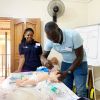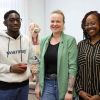Two careers, one goal: saving lives
A cardiologist from the Democratic Republic of the Congo and a nurse from Namibia share their experiences of working in Germany – and what motivates them.
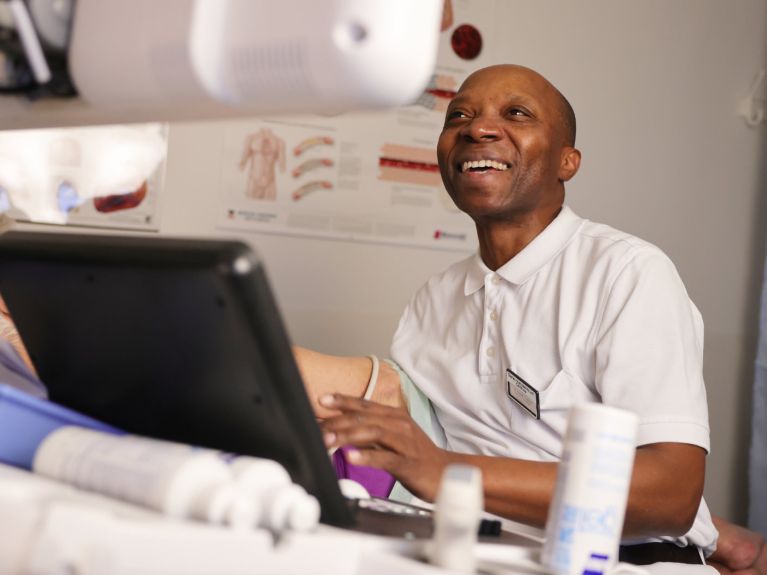
Nearly 25 years ago, Claude Tschibangu Lukusa left the Democratic Republic of Congo for Germany. He recalls arriving in a country full of light, with high medical standards – a country where he now works as a cardiologist, helping patients every day, including those who, like his own father, have suffered a heart attack. “If we had had the same level of medical care in Congo as in Germany, my father could probably have been saved,” he says.
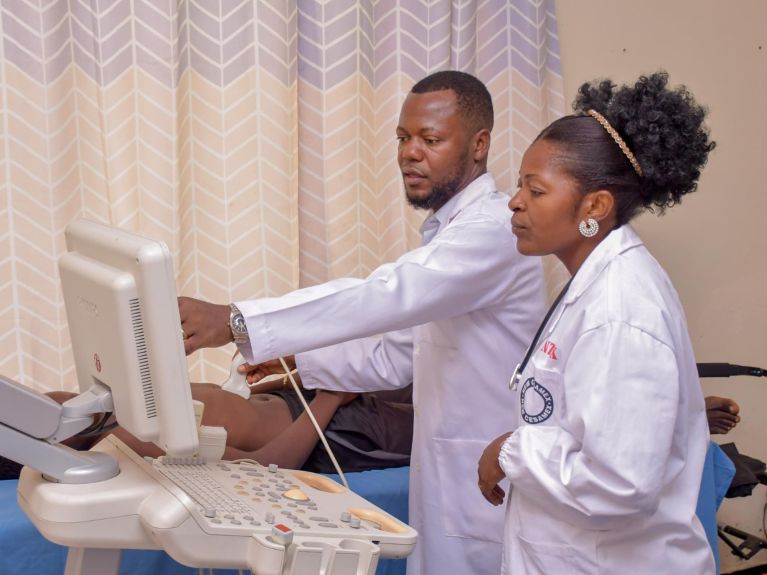
Alongside his role as senior consultant at the Sana Heart Centre in Cottbus, Lukusa is committed to a special project: bringing “good medicine from Germany to Congo.” As he puts it: “We have to learn to share fairly what we have”. Lukusa is also keen to share expertise. He teaches medicine at the University of Mbuji Mayi and dreams of one day opening a heart clinic in the city, which has a population of more than a million.
Cardiology for the future: a project in DR Congo
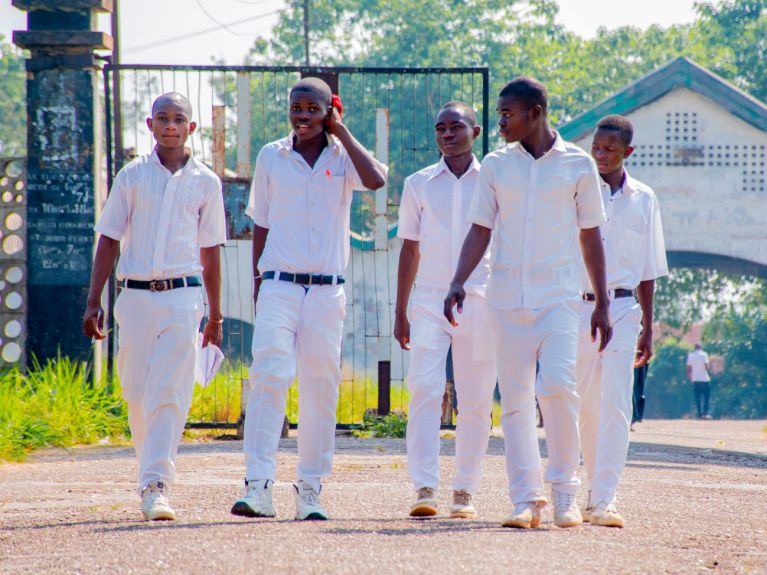
He has already taken a step towards achieving this goal by founding a cardiology diagnostics practice there, now staffed by three doctors. Lukusa spends four to six weeks a year in Congo, supported by Sana Heart Center with additional paid leave. He also receives medical equipment retired from use in Germany, enabling examinations such as ECGs and cardiac ultrasounds in the practice. Now aged 57, Lukusa hopes to spend more time in Congo once he retires in a few years’ time.
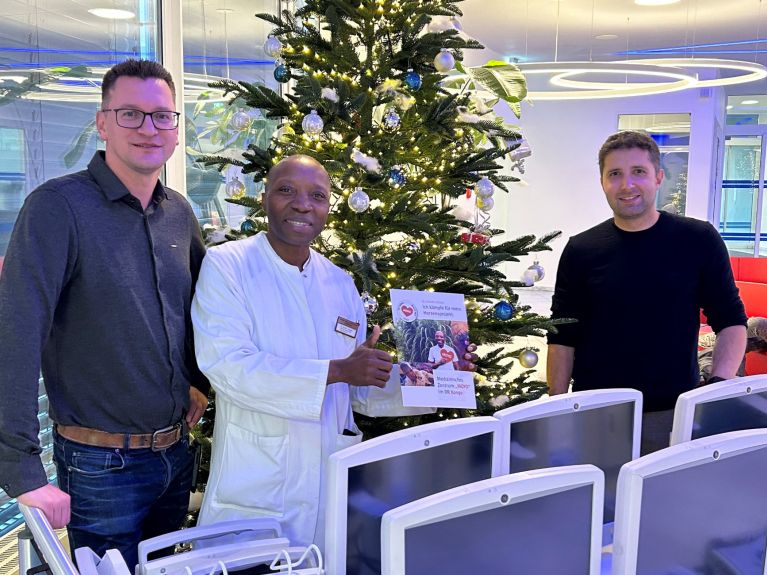
The path to cardiology in Germany
He first acquired his academic knowledge by studying medicine in Saint Petersburg, where he also met his German wife. “It was love that brought me to Germany in 2001,” he recalls. He didn’t speak any German at the time. Lukusa learned the language, worked for a home care service, and then completed a medical language programme. Since he originally wanted to become a paediatrician, this was followed by a placement in neonatology. But unlike his Russian medical degree, his qualifications in paediatrics were not recognised in Germany. As a result, his career path led him into internal medicine and cardiology, and a chance to give patients the treatment his father never received in the Democratic Republic of the Congo.
From Namibia to Germany as a nurse
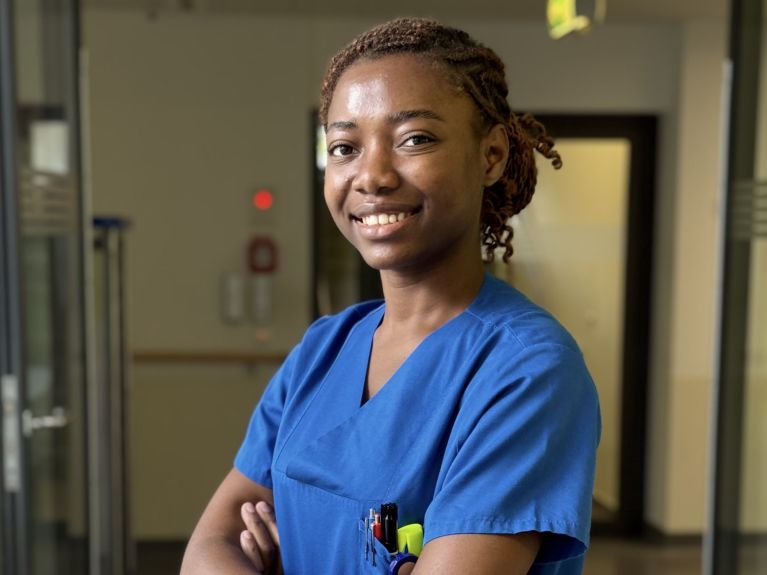
Unlike Lukusa, Leontine Kunyanda Shikukutu from Namibia is at the start of her medical career. She has been living in Germany for just over a year and works at Essen University Hospital, having done her initial training back home. She originally wanted to study medicine, but she was unable to afford it at the time. Instead, she trained as a nurse in Namibia, completing a bachelor’s degree in Nursing Science Clinical Honours.
Career in the German healthcare sector
Soon after graduating, the now 26-year-old came to Essen with the support of the recruitment agency Talent Orange, after several months of language training. “I had always dreamed of going abroad,” she says. “I wanted to grow professionally in the medical field, and Germany is the best place to do that.” At the hospital, she was assigned to a ward specialising in bone marrow transplants. “That was like a positive omen for me.”
A dream of helping cancer patients
In Namibia, Shikukutu had cared for her aunt, who was diagnosed with leukaemia and passed away two years later. “We often talked about my career. My aunt was proud of me because I always came top of my class.” Today, when she works with cancer patients on the bone marrow transplant ward, she feels close to her aunt. She hopes to pursue a master’s degree in medical physics, and perhaps even do a doctorate. “I want to keep helping cancer patients in the future.” But first she has to pass the final exam to get her Namibian degree recognised, which is scheduled for this autumn.
Life in Germany: hospital, sports and friendships
Shikukutu would like to stay in Germany. “I was surprised by how green it is here,” she says In her free time, she goes to the gym, and she also plays volleyball in a local league. Along with her colleagues at the hospital, her team has helped her improve her German. Playing volleyball previously created a German connection back home: through the sport she met a German volunteer doing a year of social service in Namibia. They later met again in Germany, and the friend invited her to spend Christmas with her family. “I was very lucky,” says Shikukutu, who values not only friendships of this kind but also the supportive colleagues she has found at the hospital. And there is something else that is especially important to her: “In Germany I know I have rights, whether I’m German or a foreigner, whatever the colour of my skin. That means a lot to me.”
Beware of dubious offers
Unfortunately, there are a lot of questionable offers out there on social media from agencies claiming to place international professionals. They often involve hidden costs and make unrealistic promises. “Make it in Germany” has compiled information to help identify trustworthy providers. Talent Orange and other reputable agencies carry the government’s “Fair Recruitment Healthcare Germany” seal, which can also serve as a guide.
